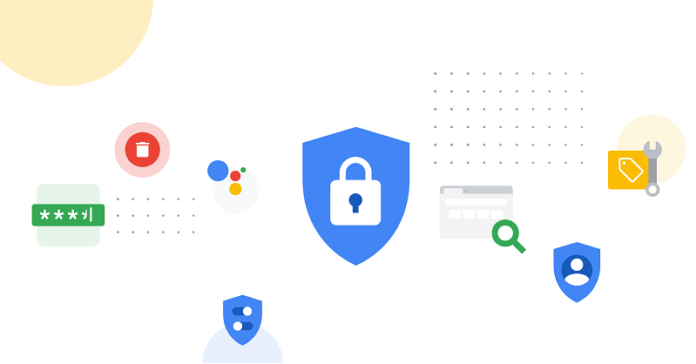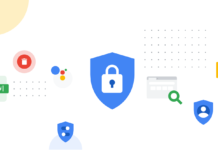If you go by the statistics, more than 30,000 websites get hacked every day. Shockingly, there is an attack every 35 seconds on the web. If you have an online business, securing your website from all the malicious links or messages is the need of the hour.
However, many business owners think that it will not impact their business. But did you know that such attacks can gather data from your website and redirect that to your customers with malicious content? It will impact your business by lowering its credibility and worth in the eyes of your customers. Can you afford to do that? Obviously not!
Additionally, various website owners often think that they are getting good traffic, so things are going well. But that’s not the case always since your website might be generating traffic from an automatic source, such as scrapers, spammers, and others.
Don’t find it convincing enough? The following data might make you think otherwise.
Why do websites get hacked?
Approximately 30 years have been passed since the invention of the World Wide Web. It has completely transformed the lives of every individual. Can you imagine the number of websites existing today online? More than 1.7 billion. Lakhs of new sites are built per day.
And many of them fall prey to hacking. So what are the possible reasons that hackers hack websites?
- To acquire confidential information.
- To abuse server resources.
- To gain access to files that can be profitable to them.
And since hackers are going the tech way, your outdated plugins might not be good enough to secure the website they once used to.
Let’s know about the threats and vulnerabilities of websites in detail!
SQL injection: Structured query language, shortly known as SQL, is a well-known hacking technique that can destroy your database. It is a kind of injection attack where the attacker tries to corrupt your database content by using the application code. The data could be in any form, and hackers might make the changes in data and delete it. If he/she is successful in performing it, then your sensitive data like card details or passwords are no longer secure. They get unauthorized success, and you face losses.
Broken authentication and session management: Managing a lot of passwords and usernames is not easy, especially in today’s technological world. This poses a danger due to an excessive increase in data and innovation in cloud technologies. In this scenario, the need for authentication and session management becomes manifold.
Do you know that this holds the 2nd position among the top 10 web vulnerabilities, as per the report by the Open Web Application Security Project (OWASP) foundation? This explains that this area still requires improvement.
As per OWASP, applications linked to authentication and session management are often not implemented correctly. This gives hackers a chance to attack passwords or session tokens. Attackers are expert in detecting the loopholes in authentication and then make use of these automated tools to make the most of the weaknesses. This creates a high risk for all businesses.
Cross-site request forgery: This is the threat that compels users to perform an activity when they do not want to do that. It is also called the one-click attack. So how does it take place? Suppose, you are a user who is authenticated against any web application. Any other website sends a request to you. After this, the hacker can easily access the functionality through the user’s authenticated browser.
You don’t want to get caught up in these vulnerabilities and threats, right? What is the solution? We are sure that till now, you all are eagerly waiting for the answers to these threats. And we will be ending your wait right here right now by disclosing the tips to improve website security!
Here’s how you can ensure the security of your website!
Strong password: Have you noticed that whenever you make any new password, it shows you how strong your password is? You will be surprised to know that nearly 20% of the users use “123456” as their passwords to secure their data. It is easy for hackers to guess passwords like these. Therefore create powerful passwords.
You can create a strong password with the help of many online tools available nowadays. Ensure that the strength of your password is “Very strong”. It should contain a combination of uppercase and lowercase letters with special characters and numerals. Don’t forget to keep changing your passwords regularly.
HTTPS and SSL certificates: HTTPS is a hypertext transfer protocol secure that is used to protect sensitive data. It determines whether the users are connected to the right server by checking the private server passkey. It works as a data encryption tool.
SSL (Secure sockets layer) is a vital site protocol. It is a standard technology that maintains a secure internet connection between 2 systems. It prevents the attackers from modifying the information when it was being transferred. An ssl certificate shows the information depicting the owner of the website. The ssl certificate cost depends upon the plans you want to take.
It includes information like domain name, a certificate authority that has issued it, public key, and many more. It is not wrong to say that this is one of the excellent methods to making your website secure.
Update your software: Innumerable sites face the consequences due to outdated software. This happens every day. To get protected from it, update the software as soon as it is available. Experts suggest that updating software helps in fixing the vulnerabilities so that the web data is not accessed by unauthorized users. Further, it will shield your site from exploiting the security hole and preventing you from the security breach.
Additionally, you can install a website firewall. It will help you to monitor and block the undesirable data packets, which can be either network, cloud, or host based. So, it will help to further enhance the website security.
Regular security testing: The internet is a tool that is ever-changing. This implies that your sites are also dynamic. Therefore regular security testing is needed as the protection against new threats and vulnerabilities.
To sum it all up
Expensive and embarrassing. What do these words denote? These words are common in the world of data breaches and site security. To remain safe from the threats, it is the need of the hour to look into these major issues and find out the right ways to solve them. We are sure that you are now loaded with the necessary steps that you can take for the betterment of your website. So what are you waiting for? Go and get started in protecting your site!








